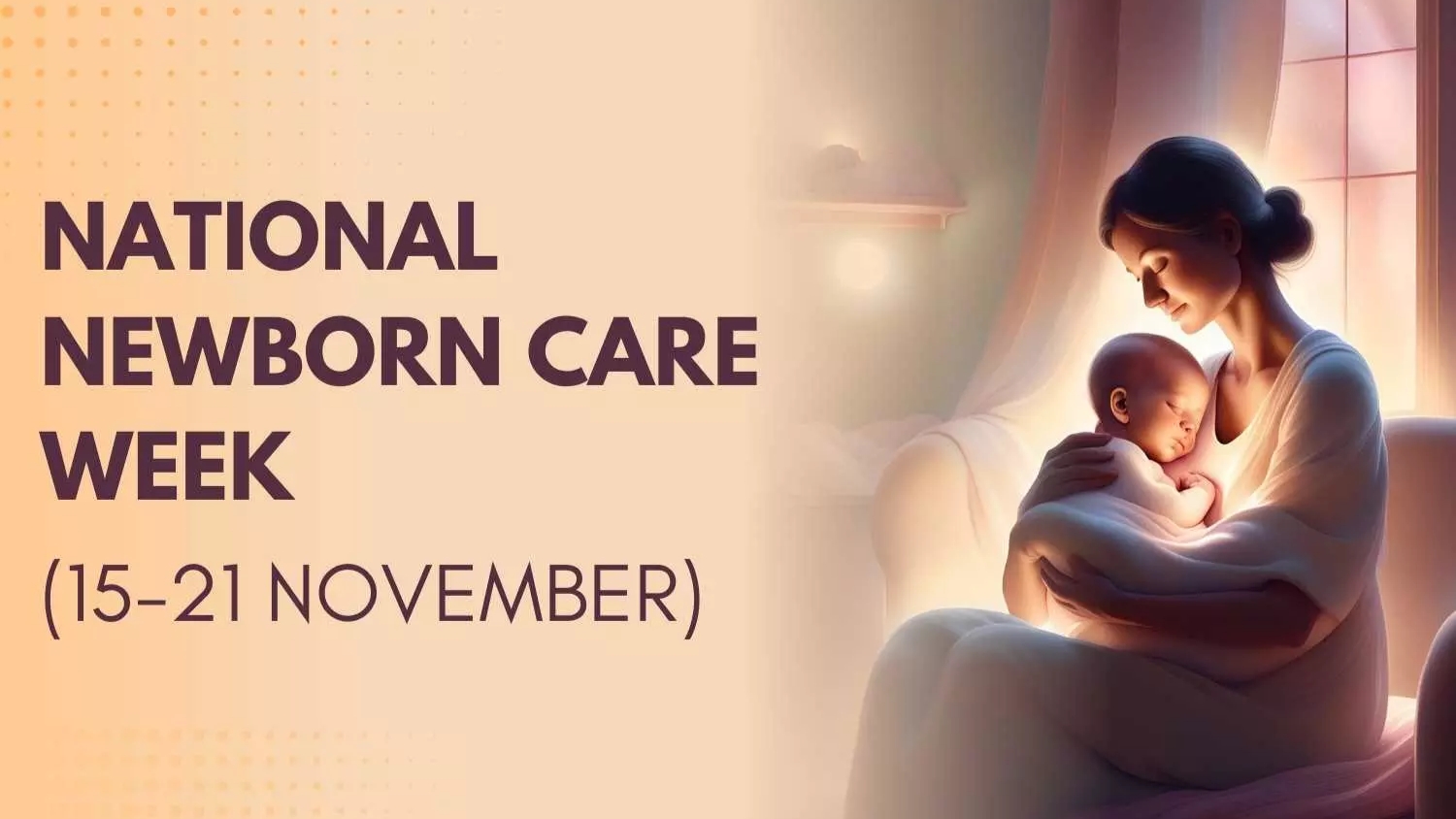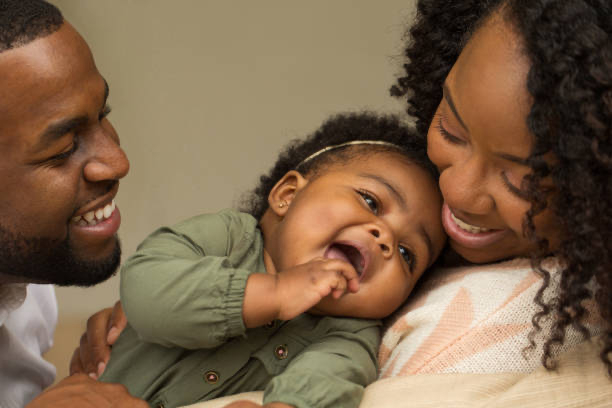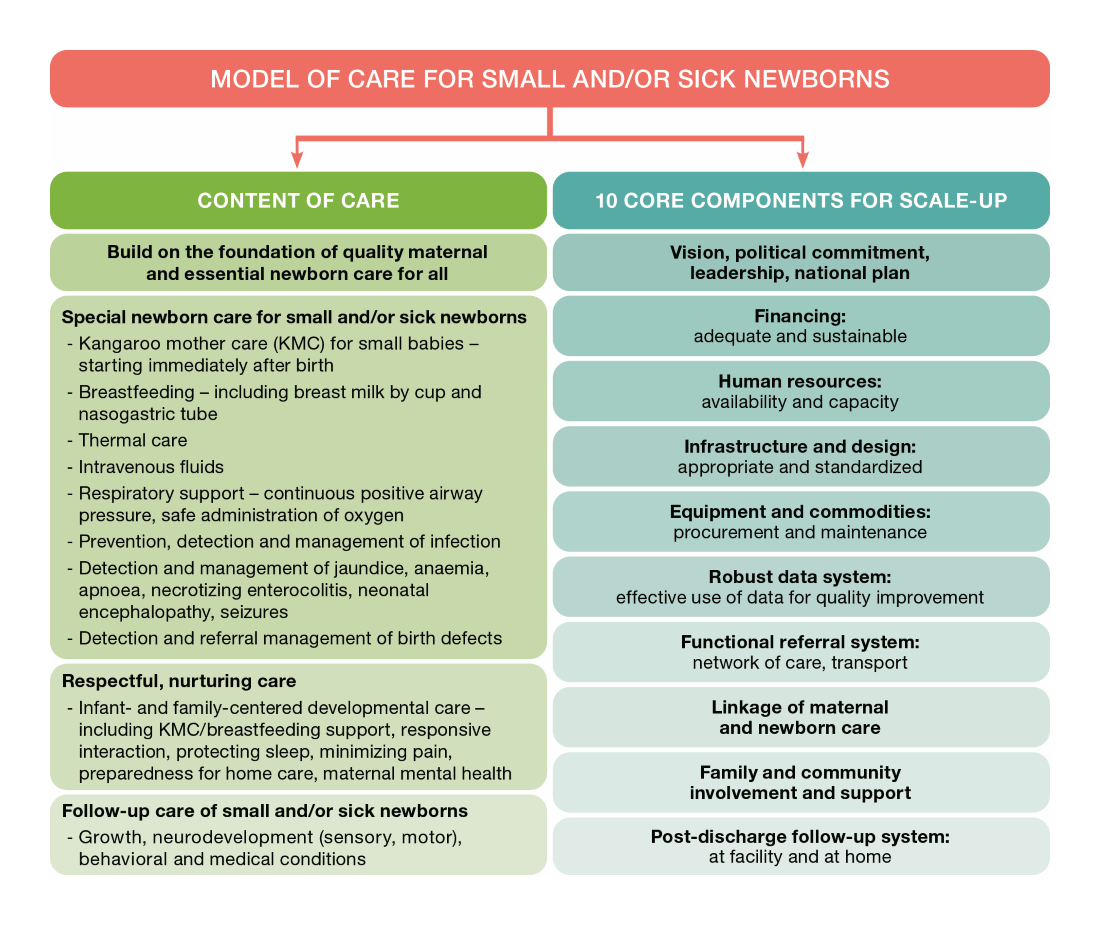National Newborn Care Week: Protecting the Health of Our Smallest Citizens.

Although November is a month of health awareness around the globe, one observance carries a particularly profound significance: National Newborn Care Week, or NNCW. Celebrated annually from November 15 to 21, this week is dedicated to safeguarding the health of newborns– the smallest, most vulnerable members of our society.
This is a time when healthcare providers, policymakers, and the community at large come together to guarantee that every baby gets a chance to survive and thrive.
Whereas many global health campaigns focus on adult illnesses or long-term chronic conditions, the case of newborn health demands urgent attention because the first days of life are uniquely fragile. This week reminds us that small interventions, timely care, and informed families can make the difference between life and death.
The Critical Window: Why the First 28 Days Matter
The neonatal period is the first 28 days after birth, a window of intense physiological adjustment. During this time, the newborn's body must make the transition from the protected environment of the womb to the challenges of the outside world. Unfortunately, it is also the period when babies are most vulnerable. Globally, a significant portion of infant deaths occurs in this short window.
The most common causes of neonatal mortality include:
Premature and Low Birth Weight: The health problems in low weight or premature are numerous. Their organs may be underdeveloped, their immune systems fragile, and they are more susceptible to infections, respiratory distress, and feeding difficulties.
Birth Asphyxia: This is a condition at birth where there is a lack of oxygen, sometimes with irreversible injuries to the brain or even death, if not promptly managed.
Neonatal Sepsis: Immature immune systems in newborn babies turn some minor infections into fatal diseases if hygiene during the process of delivery and at homes is poor.
The first 28 days of life are form the basis of a child's survival, growth, and long-term health. Every intervention done during this period can have lasting benefits.

National Commitment to Newborn Health
Although newborn survival is a global concern, the formal declaration of a National Newborn Care Week provides a systematic national strategy. Countries that observe this week demonstrate deliberate will to reduce neonatal mortality through policy, awareness, and action.
In 2014, the efforts were brought together for India in a plan termed the India Newborn Action Plan (INAP), alongside the United Nations' Every Newborn Action Plan (ENAP). NNCW is an annual checkpoint; it reminds governments, health care providers, and communities that newborn health should be a priority. This week symbolises that moment when one can take stock of progress, identify the gaps, and recommit to the unfinished agenda of saving lives.
This observance also places a strong emphasis on the importance of health equity. Many newborn deaths take place in communities that are marginalized, with limited access to healthcare, education, and resources. NNCW ensures that newborn survival is a national priority.
Spreading the Message From Hospitals to Homes
The impact of National Newborn Care Week depends on reaching all levels of society, from tertiary hospitals in cities to rural villages in remote areas. Its aim is to standardize and reinforce ENC practices so that every newborn receives life-saving interventions.
In Health Facilities: Improving Standards of Care: Hospitals and clinics have a critical role in newborn survival. During NNCW, health facilities are focused on quality improvement and staff training:
Labour Room Audits: Delivery rooms are assessed in terms of preparedness and equipment, and their compliance with infection control practices. This is to make sure that complications such as birth asphyxia are managed right then.
Strengthen Specialised Units: NICUs and SNCUs implement intensive training for doctors and nurses. Additionally, staff learn techniques of advanced resuscitation, the management of premature infants, and how to handle any emergencies that may arise.
Parental Education: Before discharge, healthcare providers counsel parents regarding breastfeeding, cord care, and immunization schedules, and the recognition of danger signs to enable them to care for their newborn at home.
At the Community Level: Extending Care Beyond Walls: The scope of NNCW stretches beyond hospital care. Community health workers at the level of ASHAs, ANMs, and volunteers play a crucial role in the continued care of newborns at home:
Postnatal Home Visits: These workers pay visits to newborns within the first six weeks and provide special care to high-risk infants like twins, pre-term babies, or those with low birth weights.
The warning signs include fever, poor feeding, labored breathing, or lethargy and are explained to families so that they seek medical care immediately if any appear.
Community Awareness: Village gatherings, combined with local workshops, raise family awareness of appropriate newborn care, dispel harmful myths, and encourage early medical intervention when necessary.
These efforts are important, as many newborn deaths still occur outside the hospital, even in home settings where families may either not recognize danger signs or not have access to timely care.
Pillars of Newborn Survival
The central message of the NNCW is about simple, yet high-impact interventions that save lives:
Early Initiation of Breastfeeding: Breastfeeding should be initiated within the first hour of life. It provides the newborn with important antibodies and nutrition to fight off infections and support growth.
Kangaroo Mother Care (KMC): Skin-to-skin contact with a parent, especially in the case of pre-term and low-weight babies, stabilizes temperature, heart rate, and breathing while fostering bonding.
Thermal Protection: Immediate drying, wrapping, and skin-to-skin contact prevent dangerous heat loss, one of the major contributors to neonatal deaths.
Hygienic Practices: Clean delivery practices, proper cord care, and hand hygiene reduce the risk of infections such as neonatal tetanus and sepsis.
Timely Immunization: Birth dose administration of vaccines like BCG and Hepatitis B before discharge offers critical protection against serious diseases.
Individually, each of these may seem like a small intervention, but together they create a powerful defense against preventable newborn deaths.

Beyond Awareness.
This a strategic, lifesaving initiative. National Newborn Care Week unites health professionals, governments, and communities around the message that every newborn has the right to a safe start.
Families and communities play an essential role inthe following;
Demand Institutional Deliveries: Skilled attendance at birth can reduce risks greatly.
Practice early breastfeeding: colostrum, the first milk, is a natural vaccine.
Monitor for Danger Signs: Quick action can save lives when warning signs appear.
Support Health Workers: Community cooperation ensures that newborns receive follow-up care and education.
Also, healthcare systems need to further enhance access, training, and facilities in reducing disparities in health care, especially in rural and underserved areas.
Success stories during NNCW are strong reminders of what is possible. In villages where postnatal visits and community education have been put into place, families report better rates of breastfeeding, fewer neonatal infections, and earlier recognition of health complications. Each baby surviving these first weeks serves as a testament to awareness, intervention, and care.
Investing in the Future National Newborn
Care Week is a reminder that newborn health is a medical issue as well as it is an investment to society. Healthy babies grow into healthy children who grow into productive adults who contribute to families, communities, and the nation.
Protecting newborns is not charity. This is an urgent shared responsibility. As we observe NNCW from November 15th to 21st, let us commit our energies to making newborn survival a reality.
Let us ensure safe deliveries, practice essential newborn care, and empower families with knowledge. We are saving not only lives but also investing in a healthier, stronger future for generations to come.
Every baby should be given that fighting chance from their very first breath. National Newborn Care Week is the reminder that together, as a community, society, and nation, we can give them that chance.
You may also like...
When Sacred Calendars Align: What a Rare Religious Overlap Can Teach Us

As Lent, Ramadan, and the Lunar calendar converge in February 2026, this short piece explores religious tolerance, commu...
Arsenal Under Fire: Arteta Defiantly Rejects 'Bottlers' Label Amid Title Race Nerves!

Mikel Arteta vehemently denies accusations of Arsenal being "bottlers" following a stumble against Wolves, which handed ...
Sensational Transfer Buzz: Casemiro Linked with Messi or Ronaldo Reunion Post-Man Utd Exit!

The latest transfer window sees major shifts as Manchester United's Casemiro draws interest from Inter Miami and Al Nass...
WBD Deal Heats Up: Netflix Co-CEO Fights for Takeover Amid DOJ Approval Claims!

Netflix co-CEO Ted Sarandos is vigorously advocating for the company's $83 billion acquisition of Warner Bros. Discovery...
KPop Demon Hunters' Stars and Songwriters Celebrate Lunar New Year Success!

Brooks Brothers and Gold House celebrated Lunar New Year with a celebrity-filled dinner in Beverly Hills, featuring rema...
Life-Saving Breakthrough: New US-Backed HIV Injection to Reach Thousands in Zimbabwe

The United States is backing a new twice-yearly HIV prevention injection, lenacapavir (LEN), for 271,000 people in Zimba...
OpenAI's Moral Crossroads: Nearly Tipped Off Police About School Shooter Threat Months Ago
ChatGPT-maker OpenAI disclosed it had identified Jesse Van Rootselaar's account for violent activities last year, prior ...
MTN Nigeria's Market Soars: Stock Hits Record High Post $6.2B Deal

MTN Nigeria's shares surged to a record high following MTN Group's $6.2 billion acquisition of IHS Towers. This strategi...
